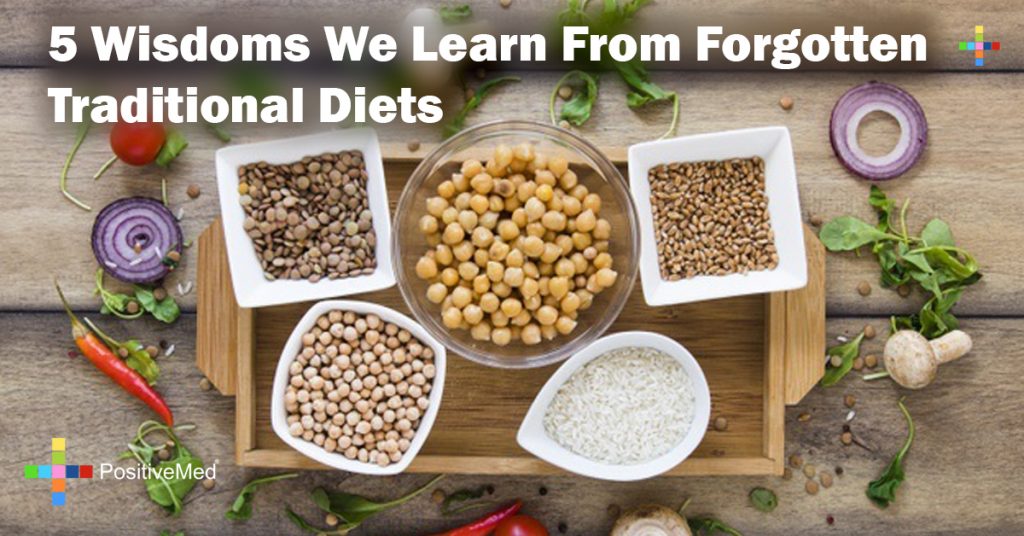
5 Wisdoms We Learn From Forgotten Traditional Diets
Technology has changed our lives for the better in many ways. Things like modern medical care, electricity and indoor plumbing make our lives simpler, cleaner and safer. Unfortunately, technology has also allowed us deviate from our traditional diets to ones that causes disease. Here are five forgotten wisdoms of traditional diets.

Eat Whole Grains
The odds are good that your great grandmother didn’t live to a ripe old age fueled by white flour. Refining grain is a relatively new process that is done solely to make foods more shelf-stable in the store, thereby making them more profitable. The end product no longer contains the oil, bran and germ that made the whole grain so nutritious and health-supporting.
Eat Butter
Corporate influence and bad science have convinced us that butter, due to the saturated fat content, is among the worst foods you can eat. You’d be better off eating chemically produced margarine. If these non-foods were truly a better option, generation upon generation of your ancestors wouldn’t have been thriving on the natural goodness of real butter. Research is only now starting to support this idea.
Eat Real Foods
Most people are strapped for time and energy these days, so they turn to pre-packaged processed meals to make things easier. Unfortunately, these products are loaded with chemicals and adulterated ingredients that only resemble food. Real food comes from from whole, recognizable ingredients. Not from a factory.
Eat Fermented Foods
Our widespread and irrational fear of bacteria have lead us away from one of our healthiest dietary traditions: Fermented foods. Real sauerkraut, kimchi, pickles and other traditionally fermented dishes contain beneficial bacteria that support health and prevent disease.
Eat Local
When your grandparents were children, the food on their plates didn’t come from across the country or another continent. They came from the nearby farm. As such, those foods were harvested at their peak, contained more nutrients and were free of preservatives meant to keep them from spoiling on the trip to the table.





